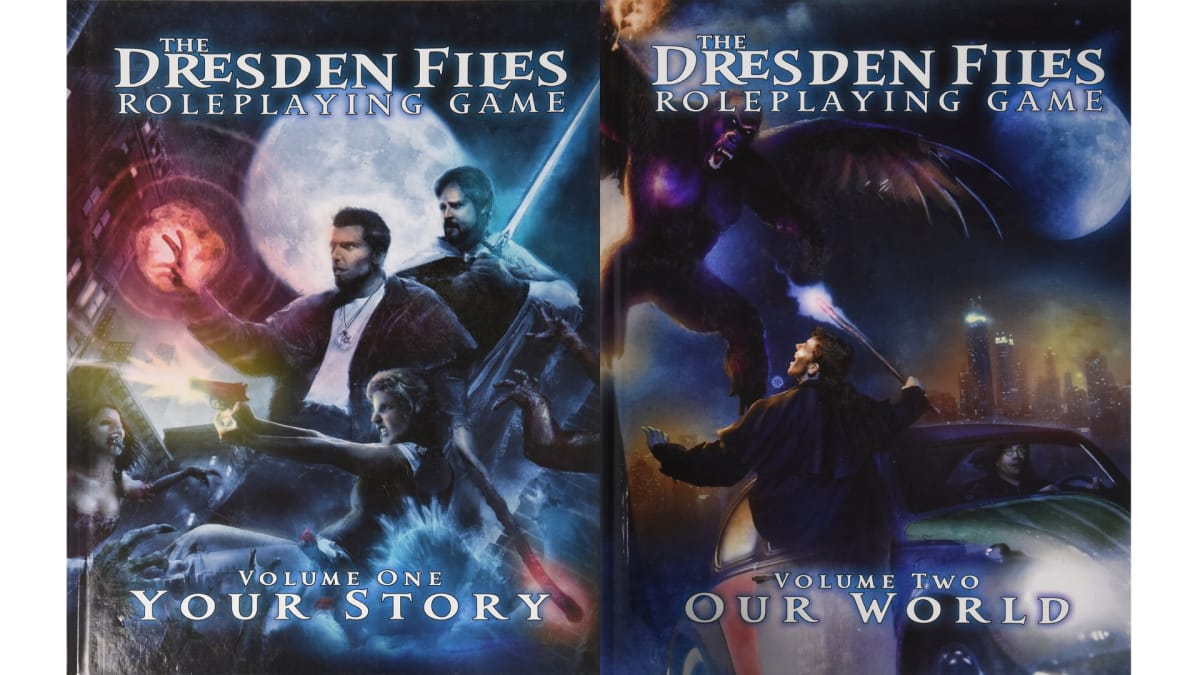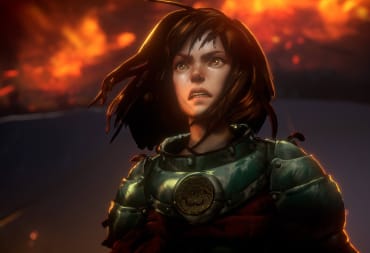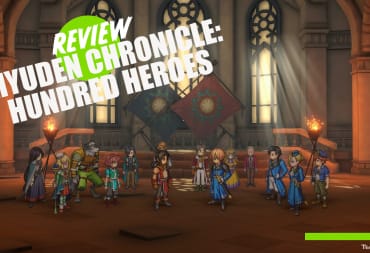Based on the best-selling novels by Jim Butcher, the Dresden Files RPG aims to bring that world to your local tabletop. Developed over years by Evil Hat, it utilizes a modified version of 3rd edition Fate rules that were first introduced in Spirit of the Century. It was released in two volumes: the first, Your Story, was focused on the player characters and a lot of the rules, while the second, Our World, featured the monsters, non-player characters, and the city of Chicago. With the upcoming release of the expansion book - The Paranet Papers - we decided to take a look back at this 2010 release.
The Dresden Files RPG - What Is It?
RPG Systems tend to focus on what they want to do. That’s not to say that they can’t do other things – it’s possible to hack, and house rule with almost anything but games are generally built to focus on a genre or style of play. GURPS is a simulationist system, Dungeons and Dragons are high fantasy, and there are tons of other systems out there, each with its own strengths and weaknesses.
Fate is a narrative-driven system with an emphasis on the characters and storytelling. One of the core assumptions with any Fate system is that the characters are competent, which carries into the Dresden Files RPG. The Dresden Files RPG takes the base system introduced in Spirit of the Century and modifies them to work with the urban fantasy world of the Dresden Files.
At the heart of the Fate system are Aspects. Aspects are descriptive terms used to describe almost anything in the game world: from character traits to relationships, to what an area is like, to problems in the world, and much more. Aspects describe and uniquely identify something while helping it interact with the rest of the rules and provide a quick, snappy way to talk about a point.
Interacting a lot with that is Fate Points, which you get based on the power level you are playing in and how many abilities you take. The more powers and stunts you have, the fewer Fate Points you have to spend, and they are typically used to use aspects, whether it's a character, a scene, or one created by a skill or situation. There are three main ways of utilizing Fate Points with aspects. Invoking an aspect means basically, 'because of this Aspect, I add +2 to my roll' and handing over a fate point if the GM agrees, or rerolling if your dice were really bad. Compelling is when an aspect gets you in trouble, either from your own roleplaying (known as self-compelling) or the GM offers a compelling with it along with a fate point if you accept (you can decline it at the cost of a fate point as well). The third is declarations, where you use an aspect to declare that something is true in narrative terms, and if your GM agrees, pay a fate point, and it is.
An Interesting Take on the Fate System
The Dresden Files RPG is perhaps the rules heaviest version of Fate – being that it uses the 3rd edition of the system and adds on a lot of abilities and systems to represent the setting. There are several attempts to explain the setting in which Our World succeeds better than Your Story, but in the end, they don't do a great job of getting it across to people who don't know the source material. It does do a good job of working for those who know it, but those who are entering it without that basis may find some of the things a bit weird, and the tone of the books uses some informal familiarity at times.
Some of that may be in part to the fact that the book is supposedly written by Billy (aka William) Borden the werewolf, with notations on the sides by him, Harry Dresden, and Bob the skull. They often help to elaborate slightly on a point or to add flavor with snark and commentary. The book is generally very well written in that way and a joy to read, with the voices of the characters being captured perfectly.
Collaborative storytelling is something that the game encourages with aspects, declarations, and even in set up with the 'city creation.' The book has a relatively in-depth and well-laid set of tools and suggestions for people to create their own city within the universe. While it's called city creation, it is more of 'game area creation' with city being the base assumption but the idea of a set of towns, a country, or basically any other set of regions. In this phase, you create different main locations and give them an aspect, and create a face: a person who represents the location. The face helps put a more human connection to it and provides inspiration for stories around that or how they work in that area.
The settings in the book are a bit of a mixed bag - Baltimore is a pretty mediocre one on the whole, not being terribly interesting. That may be from keeping Baltimore more by the numbers, as it serves as a reference and example throughout the rules explanation as the first example city. Our World does a better job of presenting Chicago - though it is possible that my familiarity with the books may influence me there. If you want to learn more about city creation – or to see an interesting one - I send you over to Rick Neal, who has a couple of wonderful posts on the topic.
Character Creation in The Dresden Files RPG
Character Creation has a simple form and the more common complex one. The simple is basically fill in 3 aspects - your High Concept, Trouble, and one more and from there, fill in as you do things. More commonly, though, you begin by working out those two key aspects and then tying it into your template. Templates are rather simple and serve as a list of powers you buy and provide permission to get certain others, and are tied into your High Concept most of the time. Your next two aspects cover a bit of background - roughly how you grew up and what was a turning point that shaped you into who you are. The final three are your first adventure and the two crossing paths, and here I've found a bit of a hit-and-miss. For the 5th aspect, everyone writes out a couple of sentences on their character's first adventure and the aspect from it and then passes it to another. Each person then looks at that adventure and says what they did to assist in it and gives themselves an aspect, and passes it again.
When this step works, it is absolutely beautiful – you end up with characters who know each other and nice, punchy short stories that flesh out backgrounds and characters. The issue is, especially for people who are new to Fate, it is difficult to get right. When it tends to not work, you end up with stilted sentences and people getting frustrated at the table or over the Internet about the situation. Given seven aspects is still a bit bloated (at 10, Spirit of the Century was really overloaded), it is possible to cut it if you think it might be problematic for your group.
There are 30 pages of supernatural powers in Your Story, and then there are numerous modifications of them in Our World that help grow the list even more. Generally speaking, they do a good job of representing the source material, though the balance can be a bit off, and some of them, in particular, have a ‘balance until it feels right’ feel to them. Many of these won’t be used by characters – who have limited powers related to a theme, each depending on their concepts - but all see at least a little use for different monsters.
Skills and Other Advantages
Skills and 'Mortal Stunts' help show off more mundane abilities generally. While a few skills interact with the magic system, the majority of the 25 skills are all about mundane things, from how well you wield a gun, to researching information, to how well you read people. Each skill has a handful of trappings, which are different types of actions you can take with the skill. When doing character creation, you get a number of skill points to spend based on the power level and a cap of the most you can have, and the Dresden Files RPG utilizes relatively straightforward skill columns to work it out. Stunts allow you to specialize in certain areas of skills - adding new trappings or being even better at a specific part of a skill. While the book provides a good number of example stunts in Your Story, it also provides some pretty solid instructions on how to make your own - and more examples of them in Our World.
The most complex part of the game is how it does magic, as it uses in different parts almost all the different systems to some degree or another. To be able to learn magic, you generally need permission from your Aspects or your Template. Like other supernatural abilities, something needs to say, 'yes, you can take this' there. There are three skills that are used in spellcasting - Conviction to summon power, Discipline to control it, and Lore to know about it. Supernatural stunts/powers are what you can buy in several forms to get it, each with its own limitations. However, the spellcasting system is pretty freeform on the whole, with many of the limitations being more based on elemental basis rather than a sort of spell list.
The Dresden Files RPG is Full of Magic
Spellcasting comes in two forms: evocation and thaumaturgy. Evocation is the one you will likely see the most – quick and dirty spells. You summon the power, control it and do something with it, like tossing a fireball or knocking someone down with a gust of wind. The game smartly avoids having people have to come up with new spells each combat by having it exhaust per scene resources (in the form of stress) and providing Rotes: a number of preplanned evocations that your character can use easily.
Thaumaturgy is more deliberate and much broader. While evocation is a raw force in many cases, thaumaturgy is precision and knowledge applied to magic. It takes time and preparation to use - not something you can drop in the middle of combat, generally speaking. However, its strength is that it can basically do anything with enough work and time. One of the issues with it though is that it can end up stalling a game as people work out the complexity of a thaumaturgical spell and what is needed to do it. While the story of a spell is interesting, it again is all about putting that character in the center and eats up more time that way, focusing on just the caster.
Both though contribute to an issue I've alluded to on occasion - balance. The Dresden Files RPG has somewhat of an issue when it comes to balancing, especially around spellcasting. Evocation is far more effective than any pure mortal attack due to the ability to hit higher rolls and add weapon damage to it, which makes it more dangerous. Additionally, some of its other things, like blocks, are things that aren't possible to do in many other ways. Thaumaturgy is slower than almost any other skill, but its pure flexibility is an issue at times - as is the amount of time it can eat up. It is suggested to ignore rolls unless there is a dramatic result of failure in many cases, as the system tends to live a lot on the rule of drama. Pressing time limits or countdowns can be one of the main things there to help with it, or requiring the story of the spell to use other people's help, turning it into a full session: maybe one character uses their contacts to get something, another uses resources to hunt them down, and a third researches the myth around a creature that the caster needs.
Conflict and Other Systems
All that said, though, one of the advantages of the system is that it presents numerous power levels of which to play at. The refresh system says how many points players have to spend to buy abilities at the start of the game – with the lowest level (Feet in the Water) allowing only limited casters and supernaturals, making it far more of a mortals game without a ton of supernatural abilities. At the other end, you have submerged, which is where Harry started off, and you’re dealing with wizards who have refined their talents a bit and are spellcasting vampires.
The game comes with a rich bestiary that includes basically every creature Harry ran into in the series – and a few he didn’t. These provide a lot of base work to use, and you can modify them with more powers or abilities quite easily, making the game's preparation on that level quite easy. As a supplement to it, there is also a long listing of characters who have appeared and their abilities explained if possible. Some beings are just listed as plot device level as their power is far beyond what the characters are at in general play, leaving it to you to come up with what sort of encounter if you want one.
The conflict resolution system uses what is similar to an endurance and wound system. Essentially physical, mental, and social have their own 'stress' track that cleans up after encounters - starting at two but rising depending on certain skills. You can only have one hit in a spot, and so it flows upwards if you have the damaged spot already full... or if it's too big of a hit, we're looking at consequences. Consequences are typically attached to a particular type of conflict, and you have a limited number of them. Each one can reduce a hit by a certain number of stress, and instead, you gain an aspect; a minor one might be, for example, a sprained ankle. The conflicts tend to be very narrative-focused - it isn't a stand-in a-spot and thwack or a number crunching - instead, it focuses on being creative, using aspects, and creating more.
One interesting bit is that the game actually has a 'concede' mechanic built in for conflicts. If you concede, you gain some control over how the loss goes - negotiating it with the GM or player and getting a number of fate points equal to the number of consequences they took in the encounter. This does a good job of showing that a lot of people aren't fighting to the death, and while it always creates a disadvantageous situation for the loser, it lets them live.
Is The Dresden Files RPG Worth Your Money?
A few quick points before we close off that I’d be remiss not to mention – the art in the book is exceptional and provides a lot of great imagery of different characters and monsters. The AAAA Wizardry short story written by Jim Butcher is a nice inclusion and also can help people learn a bit more about magic if they are new to the world easily. Last, I want to mention that Evil Hat did a very nice job with the index tables at the back, which some games forget to do, making it easy to reference points quickly. In conclusion, the Dresden Files RPG is definitely an honest recreation of the source material in tabletop form. It is a fun, narratively driven system that you’ll be able to do all sorts of things quite easily and adapt to different styles of play. However, it isn’t perfect, and balance can be somewhat wonky around spellcasting in particular.
The Dresden Files RPG can be bought in PDF form at DrivethruRPG and in hardcopy via Amazon (Your Story, Our World)
Extra Resources Rick Neal (who I linked to a couple of other times) provides some great resources. There is also a very active forum community that generates all sorts of things, including homebrew stunts and powers that might help inspire you if you need something for a character or enemy. Spirit of the Century SRD provides a basis of the 3rd edition of Fate online for free, though the Dresden Files RPG version is obviously somewhat different Evil Hat lists some good resources and has some free adventures on their website.
The reviewer bought The Dresden Files RPG in PDF format several years back and had read the series that were available of the Dresden Files by Jim Butcher at that time.
Review Summary
Have a tip, or want to point out something we missed? Leave a Comment or e-mail us at tips@techraptor.net











